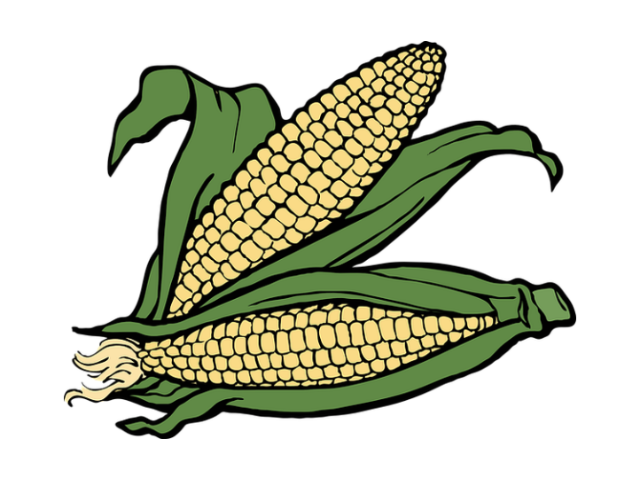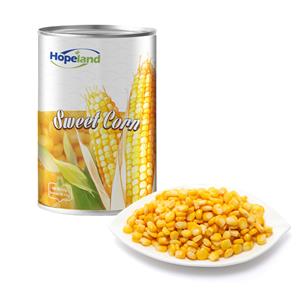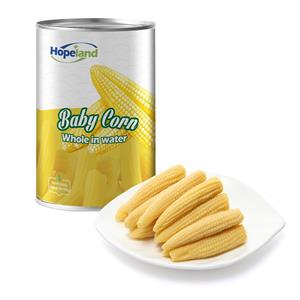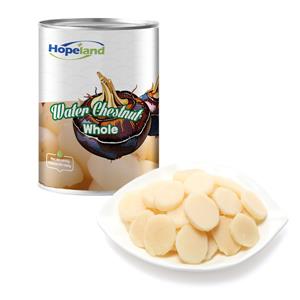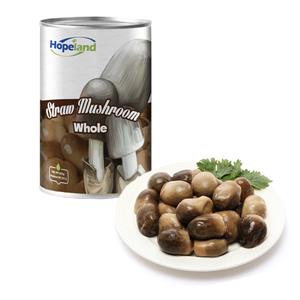How Good is Sweet Corn for Health?
Sweet corn, often regarded as a delicious and versatile ingredient in kitchens around the world, offers far more than just a tasty addition to meals. This vibrant golden vegetable, often seen as a staple in both casual family dinners and festive feasts, is packed with numerous health benefits. From its rich nutritional profile to its role in disease prevention, sweet corn is much more than just a side dish; it can contribute significantly to overall well-being.
Nutritional Breakdown of Sweet Corn
Before diving into the various health benefits of sweet corn, it's essential to understand what makes this vegetable so nutritious. Sweet corn is a rich source of various vitamins, minerals, antioxidants, and dietary fiber, all of which support numerous bodily functions. Let's break down the key nutrients found in this humble vegetable:
Carbohydrates
Sweet corn is high in carbohydrates, providing the body with a quick and easily digestible source of energy. It is particularly rich in simple sugars, including sucrose and glucose, which give it its signature sweet taste. While some may be cautious about carbohydrate-rich foods, the carbs in sweet corn are balanced with fiber, making it a healthy choice for most people when consumed in moderation.
Fiber
One of the most significant benefits of sweet corn is its high fiber content. A single ear of corn can provide around 2.9 grams of dietary fiber. Fiber plays a crucial role in supporting digestive health, preventing constipation, and promoting gut health. Furthermore, fiber helps regulate blood sugar levels by slowing down the absorption of glucose, thus preventing sharp blood sugar spikes.
Vitamins
Sweet corn is a rich source of several important vitamins, including:
Vitamin C: This vitamin is vital for maintaining a strong immune system, promoting skin health, and supporting wound healing.
Vitamin B1 (Thiamine): Essential for converting food into energy and supporting proper nerve function.
Vitamin B9 (Folate): Folate is crucial for cell division and is especially important for pregnant women, as it helps prevent birth defects.
Vitamin A: Corn contains small amounts of beta-carotene, which the body can convert into vitamin A, a nutrient essential for vision and skin health.
Minerals
Sweet corn is a good source of several minerals, including:
Magnesium: This mineral is necessary for muscle and nerve function, as well as for the production of energy.
Potassium: Important for maintaining a healthy heart and regulating blood pressure.
Iron: Helps in the formation of red blood cells and the transportation of oxygen throughout the body.
Antioxidants
Sweet corn contains various antioxidants, such as lutein and zeaxanthin, which have been shown to support eye health. These antioxidants help protect the eyes from harmful UV light and reduce the risk of age-related macular degeneration, a leading cause of blindness in older adults. Additionally, the antioxidant properties of sweet corn can help combat oxidative stress, reducing inflammation and the risk of chronic diseases like cancer.
Health Benefits of Sweet Corn
Supports Digestive Health
The high fiber content in sweet corn is perhaps its most well-known health benefit. Fiber is essential for healthy digestion, as it adds bulk to the stool and aids in moving food through the digestive tract. Regular consumption of fiber-rich foods like sweet corn can help prevent constipation, reduce the risk of hemorrhoids, and improve overall gut health. Moreover, fiber helps balance the gut microbiota, encouraging the growth of beneficial bacteria while suppressing harmful pathogens.
Promotes Heart Health
Sweet corn is heart-healthy for several reasons. Firstly, it is a good source of potassium, which plays a critical role in regulating blood pressure. Potassium helps balance sodium levels in the body, which can reduce the risk of high blood pressure—a major risk factor for heart disease. Additionally, the fiber in sweet corn helps reduce levels of LDL cholesterol (the "bad" cholesterol), further promoting cardiovascular health.
Aids in Weight Management
Despite its sweetness, sweet corn can play a role in weight management. The fiber content helps you feel full for longer, reducing overall calorie intake by curbing hunger. Moreover, sweet corn is relatively low in calories, making it an excellent choice for those trying to manage their weight. When included in a balanced diet, sweet corn can support healthy weight loss or maintenance.
Supports Healthy Vision
Sweet corn contains significant amounts of antioxidants such as lutein and zeaxanthin, which are crucial for maintaining eye health. These antioxidants protect the eyes from the harmful effects of UV light and reduce the risk of cataracts and macular degeneration, both of which are common age-related eye conditions. Lutein and zeaxanthin help filter blue light and neutralize free radicals that can damage the eyes.
Boosts Immune Function
The vitamins and antioxidants found in sweet corn, particularly vitamin C, play a key role in supporting the immune system. Vitamin C is known to enhance the production of white blood cells, which are essential for fighting off infections. Regular consumption of sweet corn can help strengthen the immune system and reduce the risk of common illnesses like colds and flu.
Regulates Blood Sugar Levels
While corn is relatively high in carbohydrates, it has a low to medium glycemic index, which means it has a moderate effect on blood sugar levels. The fiber in sweet corn also helps slow the digestion and absorption of sugars, preventing rapid spikes in blood glucose. For individuals with diabetes or those looking to maintain stable blood sugar levels, sweet corn can be a healthy and satisfying option when eaten in moderation.
Prevents Anemia
Sweet corn is a good source of iron, a mineral essential for the production of hemoglobin—the protein in red blood cells that carries oxygen throughout the body. Consuming iron-rich foods like sweet corn can help prevent iron-deficiency anemia, a condition characterized by fatigue, weakness, and poor concentration.
Promotes Skin Health
The vitamin A and antioxidants in sweet corn contribute to healthy skin by supporting cell growth and repair. Vitamin A is especially important for maintaining healthy skin and preventing dryness, acne, and other skin conditions. Additionally, the antioxidants in corn help protect the skin from the damaging effects of free radicals, which contribute to premature aging.
Improves Bone Health
Magnesium, a mineral found in sweet corn, is crucial for maintaining strong bones. Magnesium helps regulate calcium levels in the body and supports bone mineralization. Regular intake of magnesium-rich foods, like sweet corn, can help prevent conditions like osteoporosis, which is characterized by weakened bones.
Sweet Corn and Its Role in Disease Prevention
Beyond its day-to-day health benefits, sweet corn also plays a role in preventing chronic diseases and promoting overall longevity. The antioxidants and fiber in sweet corn can help reduce the risk of conditions such as heart disease, diabetes, and certain cancers. Additionally, the nutrients in sweet corn help regulate various bodily processes, such as inflammation and oxidative stress, that contribute to the development of these diseases.
Heart Disease: The fiber, potassium, and antioxidants in sweet corn contribute to heart health by lowering cholesterol, reducing blood pressure, and preventing the buildup of plaque in the arteries.
Cancer: The antioxidants in sweet corn help protect against cellular damage, which is a leading cause of cancer. The high levels of fiber may also reduce the risk of colorectal cancer by promoting healthy digestion and regular bowel movements.
How to Incorporate Sweet Corn into Your Diet
Sweet corn can be enjoyed in a variety of ways, making it easy to add to your diet. Here are a few ideas:
Grilled or Boiled: The simplest way to enjoy sweet corn is by grilling or boiling the ears of corn. This method helps preserve the corn’s natural sweetness while adding a smoky flavor from grilling.
Salads: Add fresh or canned sweet corn to salads for a burst of color and flavor. It pairs well with other vegetables and proteins, making it a versatile salad ingredient.
Soups and Stews: Sweet corn can be a hearty addition to soups and stews, adding texture and natural sweetness to the dish.
Smoothies: For a unique twist, blend sweet corn into a smoothie. It pairs well with fruits like mango, pineapple, and banana for a tropical-inspired treat.
Canned or Frozen: If fresh corn isn’t available, canned or frozen corn can be a convenient option while still retaining much of its nutritional value.
Conclusion
Sweet corn is more than just a delicious side dish—it is a nutritional powerhouse that offers a wide range of health benefits. From promoting digestive health to supporting heart and eye health, sweet corn is a versatile vegetable that can be enjoyed in various forms and incorporated into a balanced diet. Its fiber, vitamins, minerals, and antioxidants make it a valuable addition to any meal, helping to support overall well-being and reduce the risk of chronic diseases. Whether eaten fresh, canned, or frozen, sweet corn is a healthy, affordable, and flavorful choice for anyone looking to boost their nutrition.

